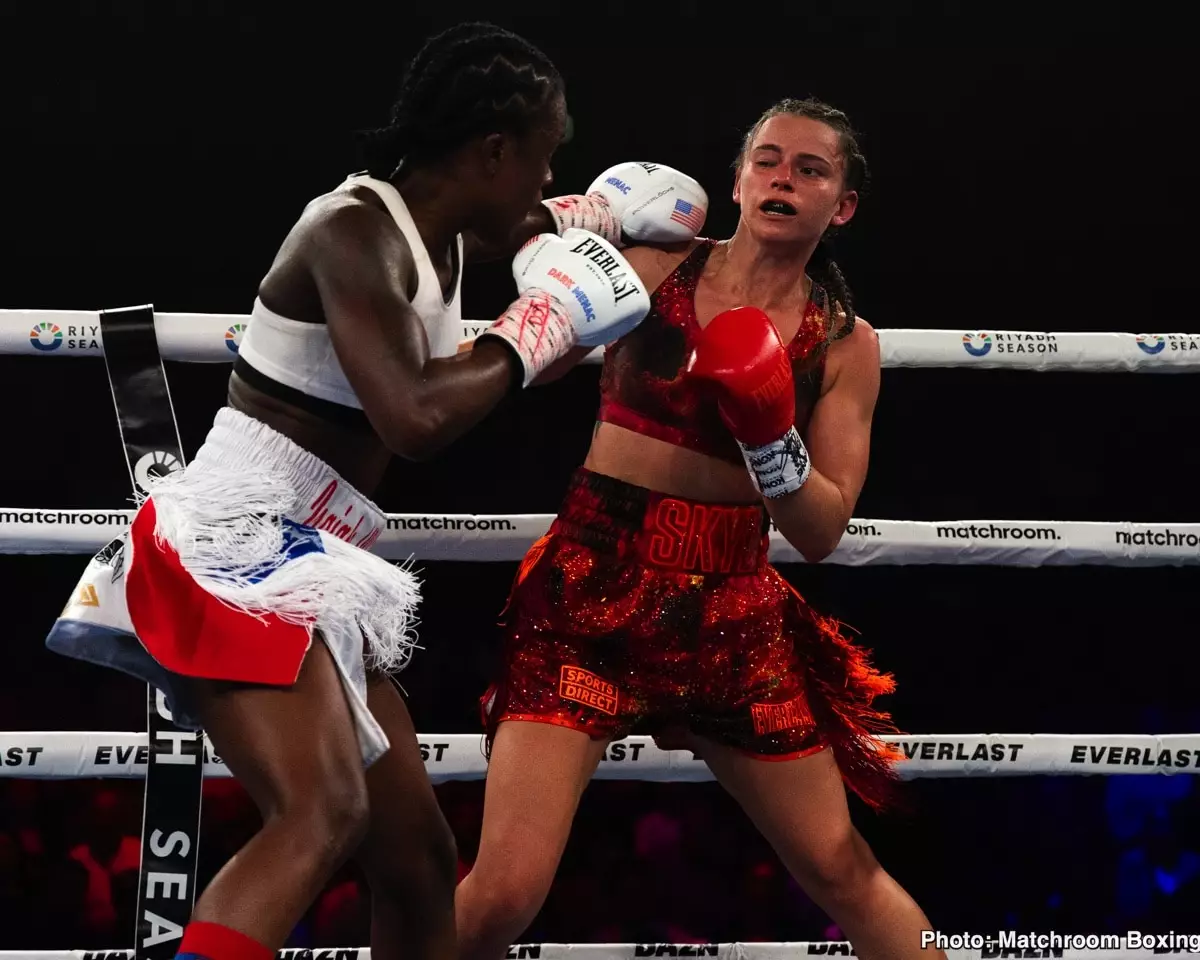In a surprising twist of fate, Eddie Hearn, the well-known boxing promoter, found himself grappling with a bewildering loss in the world of female featherweight boxing. Skye Nicolson, the reigning WBC world female featherweight champion with a record of 12 wins and just 1 loss, faced an unexpected setback against Tiara Brown, an undefeated contender boasting a formidable 19-0 record with 11 knockouts, during an intensely contested match at the Qudos Bank Arena in Sydney, Australia. The split decision defeat left Hearn visibly shaken, navigating the turbulent waters of disappointment and disbelief not only for his fighter but also for the expectations of Australian boxing fans.
Hearn’s assessment of the fight suggests a lingering frustration with how it unfolded. While he noted that the bout could have easily gone in Nicolson’s favor, he maintained that the overall performance by Brown was dominant. His comments highlight a growing concern regarding disparities in judges’ decisions and how home turf advantage can sometimes fail to play in favor of local athletes. Nicolson, in his view, should have clinched the victory despite her unconvincing tactics.
Analyzing the Fight Dynamics
From the outset, the clash between Nicolson and Brown played out like a masterclass in contrasts. Nicolson’s boxing style has often been characterized as hit-and-run, a method that provides her with momentary advantages but can also come off as erratic and ineffective as the match progresses. Meanwhile, Tiara Brown showcased a more aggressive strategy, consistently pressuring Nicolson and landing significant combinations that significantly shifted momentum in her favor. Throughout the fight, it became clear that Brown’s relentless attack presented a formidable challenge for Nicolson, leading observers to question the effectiveness of her sporadic bursts of offense.
The final scorecards—two in favor of Brown and one for Nicolson—sparked outrage among fans and commentators alike. Hearn specifically criticized the scoring from the Australian judge, Phil Austin, who controversially awarded Brown the last five rounds. Such a verdict raised eyebrows, especially as many believed Nicolson had done enough to secure at least a narrow victory. The fight, in essence, was not simply a contest between two boxers but a reflection of the broader issues faced within the sport, especially regarding fair judging and the subjective nature of scoring.
Examining Judging Bias and Its Implications
Judges hold a monumental responsibility; their decisions can impact careers and legacies overnight. The aftermath of this bout raises pertinent questions not only about the effectiveness of scoring systems but also about potential biases stemming from regional affiliations. Hearn’s assertion that an Australian judge might shy away from favoring a local fighter adds to a growing discourse on the necessity for impartiality in officiating sports. One can’t help but wonder about the psychological pressures on judges who cater to local sentiments, creating a complex interplay between fairness and national pride.
It is also tempting to point fingers at Hearn, who has staked his reputation on Nicolson’s abilities. Promoting a fighter involves a delicate balance of management and motivation, ensuring that they perform to their maximum potential. In this case, Hearn’s multiple assertions regarding Nicolson’s performance create an unsettling narrative—was something amiss behind the scenes? Was there a lack of preparation, or was the weight of expectations simply too heavy?
Unpacking Skye Nicolson’s Future
The stakes are undeniably high for Nicolson moving forward. At just 29 years old with an impressive track record, her career is still very much at a crossroads. The pressure to bounce back after a setback of this magnitude cannot be understated. It would be prudent for her to reevaluate her boxing approach, honing her technique to adapt to aggressive fighters like Brown who can effectively neutralize her style.
The boxing community often perceives losses as fundamental learning experiences rather than definitive endpoints. As Nicolson assesses her options, the need to adapt to the rapidly evolving landscape of women’s boxing will be crucial. The skeptic in me believes that she must also navigate the larger societal expectations imposed on female athletes—a challenge that any female contender must face in a sport historically dominated by men.
Skye Nicolson’s unexpected loss to Tiara Brown marks a notable moment in the landscape of female boxing. With sentiment echoing through the corridors of the sport, it is now time for Nicolson to reflect, regroup, and redefine her path moving forward. The fight has opened a dialogue regarding the intricate dynamics of competition, judgment, and the nuanced layers of female boxing that need addressing, ultimately shining a spotlight on areas ripe for improvement.

